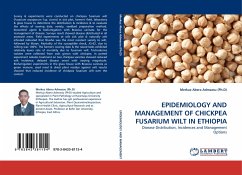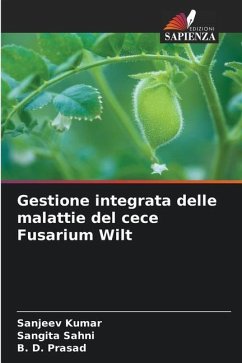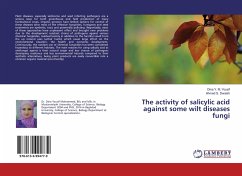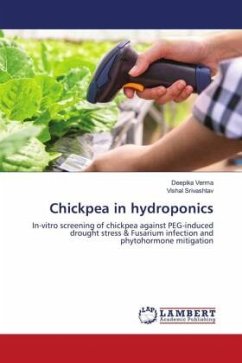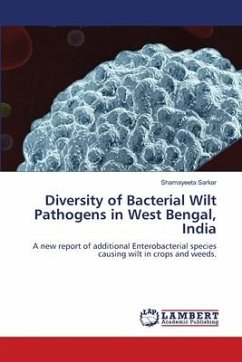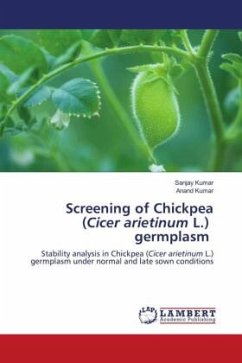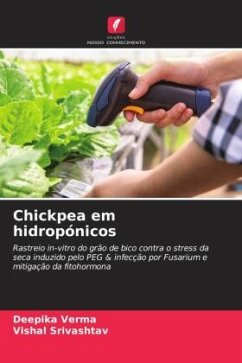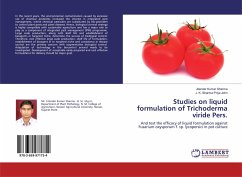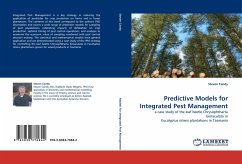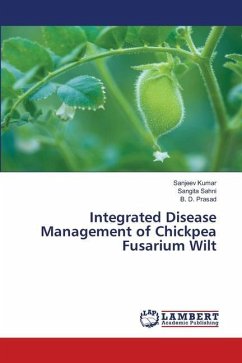
Integrated Disease Management of Chickpea Fusarium Wilt
Versandkostenfrei!
Versandfertig in 6-10 Tagen
40,99 €
inkl. MwSt.

PAYBACK Punkte
20 °P sammeln!
Chickpea (Cicer arietinum) is one of the world's major legume crops and suffers substantial damage from wilt disease incited by Fusarium oxysporum f. sp. ciceri (Padwick) with yield loss over 60 per cent. It is an important soil borne plant pathogen and is difficult to manage by application of chemical. Moreover, the chemical control is costly and leads to residual effect. In this book, an integrated approach using host plant resistance and integration of three components i.e., cultural (vermicompost amendment), chemical (ZnSO4 and Salicylic acid) and biological (seed bacterization with Pseudo...
Chickpea (Cicer arietinum) is one of the world's major legume crops and suffers substantial damage from wilt disease incited by Fusarium oxysporum f. sp. ciceri (Padwick) with yield loss over 60 per cent. It is an important soil borne plant pathogen and is difficult to manage by application of chemical. Moreover, the chemical control is costly and leads to residual effect. In this book, an integrated approach using host plant resistance and integration of three components i.e., cultural (vermicompost amendment), chemical (ZnSO4 and Salicylic acid) and biological (seed bacterization with Pseudomonas spp.) were contemplated to manage this disease more effectively.



